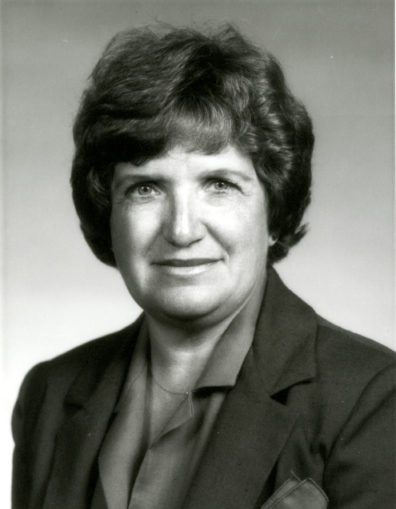Graduate Student News
Working with Agencies: PhD Candidates Working with WASPC
Two PhD candidates (April Kraft-Duley and Megan Parks), under the supervision of David Makin, associate professor, will be working with Washington Association of Sheriff’s and Police Chief’s (WASPC) program coordinators this summer to assist with program evaluations and data collection and analysis for the new WASPC Officer Wellness grant program. The WA Legislature allocated funds to WASPC to establish a behavioral health support and suicide-prevention grant program for police departments. The program will serve to leverage access to mental health professionals, overall physical and mental wellness, critical stress management, and resiliency training, The WSU students will assist WASPC with tracking and analyzing important data points as the new grant program is rolled out. The evaluations conducted will help WASPC identify what plans and programs have success so that other agencies across the state can duplicate and implement successful officer wellness programs. This opportunity emerged from a relationship built during a CRMJ 540-Evaluation Seminar course. The class project allowed for an applied experience; an evaluability assessment of a program overseen by WASPC. As WSU graduate students assist with the current WASPC grant project, they will gain valuable experience in working with agency personnel and data and conducting evaluations. Ideally the work will contribute to improved programming across agencies and will also help to strengthen the practitioner–researcher relationship.
BlueBridge Alliance Program
Erica Magaña will spend the summer setting up and then carrying the initial phase of an evaluation of the BlueBridge Alliance program. The program, funded through a grant by the Department of Commerce’s Office of Firearm Safety and Violence Prevention, is expending to nine Washington State police departments an innovative idea started up in Kennewick. It aims to provide officers with funds for providing on-the-spot interim relief to individuals in need. The goals of the program are to improve community–police relations, as well as police morale and culture. Under supervision of Mélanie-Angela Neuilly’s, associate professor and department chair, Erica will design and deploy phase one of the pilot program’s evaluation this summer, with the follow up taking place during spring–summer 2023.
Association for Faculty Women’s Harriet B. Rigas Dissertation Award
Samantha Tjaden, PhD candidate, won the Association for Faculty Women’s Harriett B. Rigas Dissertation Award. Sam was nominated by her advisor, Amelie Pedneault, assistant professor. The below information was retrieved from the Association For Faculty Women:
“Samantha’s own experiences as a Latina, first-generation doctoral student, and military widow have shaped her graduate career as she works to expand inclusiveness and diversity in the field of criminal justice. Her research area focuses on perceptions of sexual assault perpetuation and victimization and viewed intersectionally in the context of gender and race. She is first author of a co-authored paper on the effects of online ads on female homicide rates and has another article in preparation based on research she conducted about the impact of gender and race in fatal encounters between law enforcement officers and members of the public. She has participated in WSU’s Research Assistantship for Diverse Scholars (RADS) program, and served as a research assistant for Dale Willits, associate professor, helping to collect and analyze data and supervise students. She has also been a teaching assistant and was so successful at this that she was recommended to teach undergraduate statistics. She went on to teach other classes and was awarded the Criminal Justice and Criminology Department’s Outstanding Teaching Award. Her nominators noted that she was able to create relationships with students and serve as a role model based on her background, her excellence in teaching and scholarship, and her experience as a police officer herself. In addition to her research and teaching, Samantha lobbies for policies and legislation that better serve military families; she also is active in a network of military widows and as a volunteer and ambassador for the Wear Blue Run to Remember nonprofit, which raises funds for veterans’ services.
Harriett B. Rigas Award
The Harriett B. Rigas Award is presented to outstanding PhD students; both full- and part-time students are eligible.
Harriett B. Rigas (1934-1989) was an electrical engineer with an international reputation for her hybrid computer and computer simulation research. At Washington State University between 1966 and 1984, she was eventually both full professor and chair of Electrical and Computing Engineering. Later she chaired larger departments at the Navy’s Postgraduate School in Monterey and, at the time of her death, Michigan State University.
Rigas’s achievements in engineering research, administration, and service were widely recognized. In 1975-76, She was a program director at the National Science Foundation and, over the years, a member of numerous panels and advisory committees at both NSF and the national Academy of Sciences. Her honors included being voted a fellow of the Institute of Electrical and Electronic Engineers, an international organization for professional electrical engineers, and being given the University of Kansas’s Distinguished Engineering Service Award.
Rigas’s success was achieved within a profession and within university administrative structures where there were very few women. Her character and courage were both evident in her strong advocacy of advancement for women. She was involved both locally and nationally in the Society of Women Engineers (and given one of their early national achievement awards).
At WSU, Rigas chaired the Commission on the Status of Women during its infancy in the early 1970s; and she was an early president of the Association for Faculty Women. To individual women she was a source of encouragement and advice.
The Association for Faculty Women named the Harriett B. Rigas Outstanding Woman in Doctoral Studies Award in her honor.




